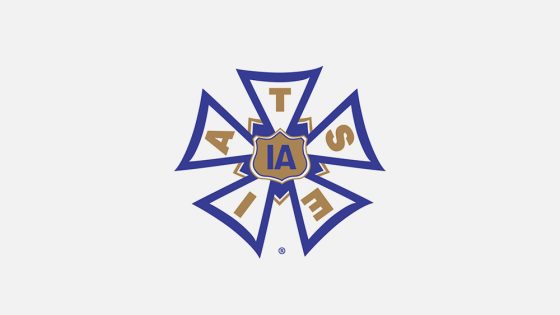MADISON — A federal judge ruled this week against allowing access to court documents sealed nearly a decade ago in a bankruptcy filing by the Archdiocese of Milwaukee, denying a request made by the state Department of Justice as part of an investigation into sexual abuse committed by faith leaders in Wisconsin.
U.S. District Judge G. Michael Halfenger wrote in a Sept. 30 decision that the agency failed to make a valid case for revisiting the bankruptcy decision and did not provide a sufficient plan for notifying clergy abuse victims of its request for access to sealed records.
In a motion filed last year with the U.S. District Court for the Eastern District of Wisconsin, Attorney General Josh Kaul requested a confidential review of “sealed claims by survivors, objections to those claims, briefing on such objections, and rulings on the objections.” Kaul argued the Archdiocese of Milwaukee had not voluntarily provided records sought by the agency.
Under the request, information from the documents would have been used to further a state DOJ investigation into the scope of faith leader abuse in Wisconsin, but no documents would be released publicly.
“Given the decades of secrecy and subversion surrounding abuse reports and the findings in other states in which inquiries into faith leader abuse were conducted, DOJ’s independent review of the lists of credibly accused priests published by dioceses in Wisconsin is amply justified,” Kaul argued in the motion.
The DOJ motion sought to reopen the 2015 case that resulted in a settlement between the Archdiocese of Milwaukee and hundreds of survivors, in which the organization agreed to pay $21 million to compensate victims of sexual abuse. The settlement brought an end to a long-running case in bankruptcy court.
Kaul’s request to reopen the case was limited to the DOJ’s request to access sealed documents.
“DOJ does not ask for anything to be unsealed; it only asks that the DOJ be included among those that are permitted to confidentially review claims and related documents,” the motion read.
The Archdiocese objected, arguing that abuse survivors filed their claims with the understanding they would be “received and maintained in the strictest confidence, under permanent seal, and that access to them be given only to a small and specified number of individuals who agreed in writing to comply with detailed confidentiality protocols,” Halfenger wrote in his decision.
“The sheer magnitude of the State’s request is staggering, and that is without even considering the substantial logistical hurdles that would need to be cleared (and the monetary and other costs that would need to be incurred) to provide Abuse Survivors with adequate notice of the State’s request in this complex case that has been closed since 2016,” the judge wrote.
According to Halfenger’s ruling, more than 580 claims were filed by survivors of clergy abuse, and more than 550 remain permanently under seal.
The decision “completely dismisses what survivors wanted and still want,” Nate’s Mission program director Peter Isely told the Milwaukee Journal Sentinel. Nate’s Mission is an advocacy group aimed at ending clergy abuse in Wisconsin, named for Nate Lindstrom, who accused multiple priests at St. Norbert Abbey in De Pere of sexually abusing him in the 1980s. He died by suicide in 2020, nearly one year after the abbey stopped sending secret payments he received for 10 years.
The Archdiocese of Milwaukee filed for bankruptcy protection in 2011 as it faced more than a dozen civil lawsuits over its handling of abuse claims. The Archdiocese moved to reorganize, as the claims for financial compensation exceeded its means.
Under the eventual settlement agreement, 330 of about 570 people who filed sexual abuse claims in the case received financial settlements. At the time, the settlement payout paled in comparison to those in similar Catholic Church bankruptcy cases, such as Boston’s $85 million settlement in 2003.
Kaul alleged the claims that weren’t part of the settlement meant abusers could have gotten away with their crimes, and that some survivors never got the justice they deserved.
“To the extent that names of abusers who should be on these lists are not — even if those abusers are deceased — their survivors may have lived not only with the trauma from abuse but also with the compounding harm of not having their abuse acknowledged,” he wrote. “Having their abuser named, and their abuse recognized, can provide a sense of healing for survivors of abuse.”
The motion outlined how obtaining information included in the settlement might help complete reports made during the DOJ’s faith leader inquiry.
The bankruptcy filings would provide a “unique opportunity to corroborate,” Kaul argued.
The motion could have also granted the DOJ access to claims made against individuals within the Archdiocese who weren’t clergy members, such as visiting priests, teachers and volunteers.
Frank LoCoco, the attorney representing the Archdiocese of Milwaukee., noted that Halfenger referred to the DOJ case as a “massive fishing expedition.”
“We are thankful for Judge Halfenger’s ruling because a breach of confidentiality like that would have been devastating to abuse survivors who see this case as closed, and want their claim kept under seal by the court,” LoCoco said in a statement. “In his ruling, Judge Halfenger reasserts the bankruptcy court’s finding at the time that because the abuse happened so long ago in the 1950s-70s, there are no longer any public safety concerns.”
The DOJ did not immediately provide comment on the decision.
This story will be updated.
Jessie Opoien can be reached at jessie.opoien@jrn.com and on X at @jessieopie. Laura Schulte can be reached at leschulte@jrn.com and on X at @SchulteLaura.
This article originally appeared on Milwaukee Journal Sentinel: Federal judge blocks reopening of Milwaukee Archdiocese bankruptcy
Source Agencies



